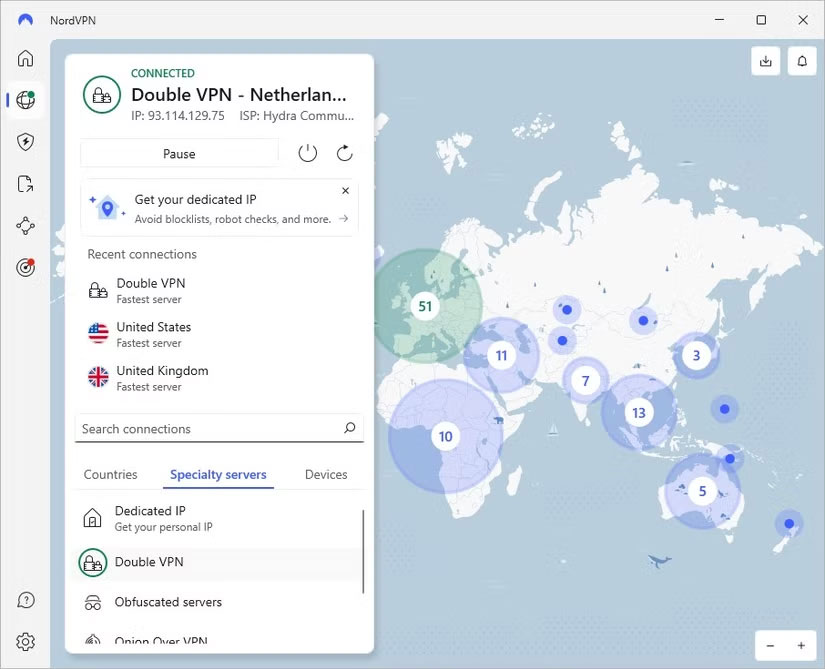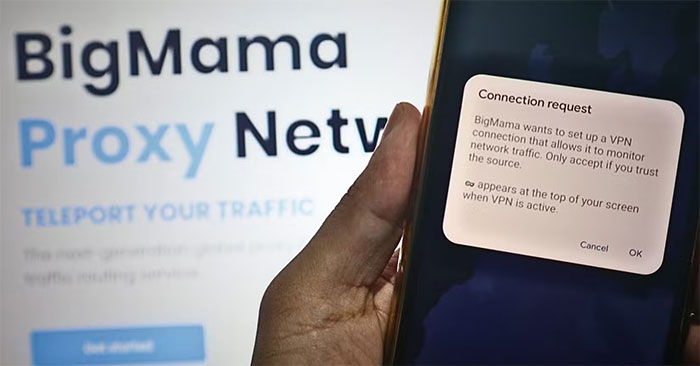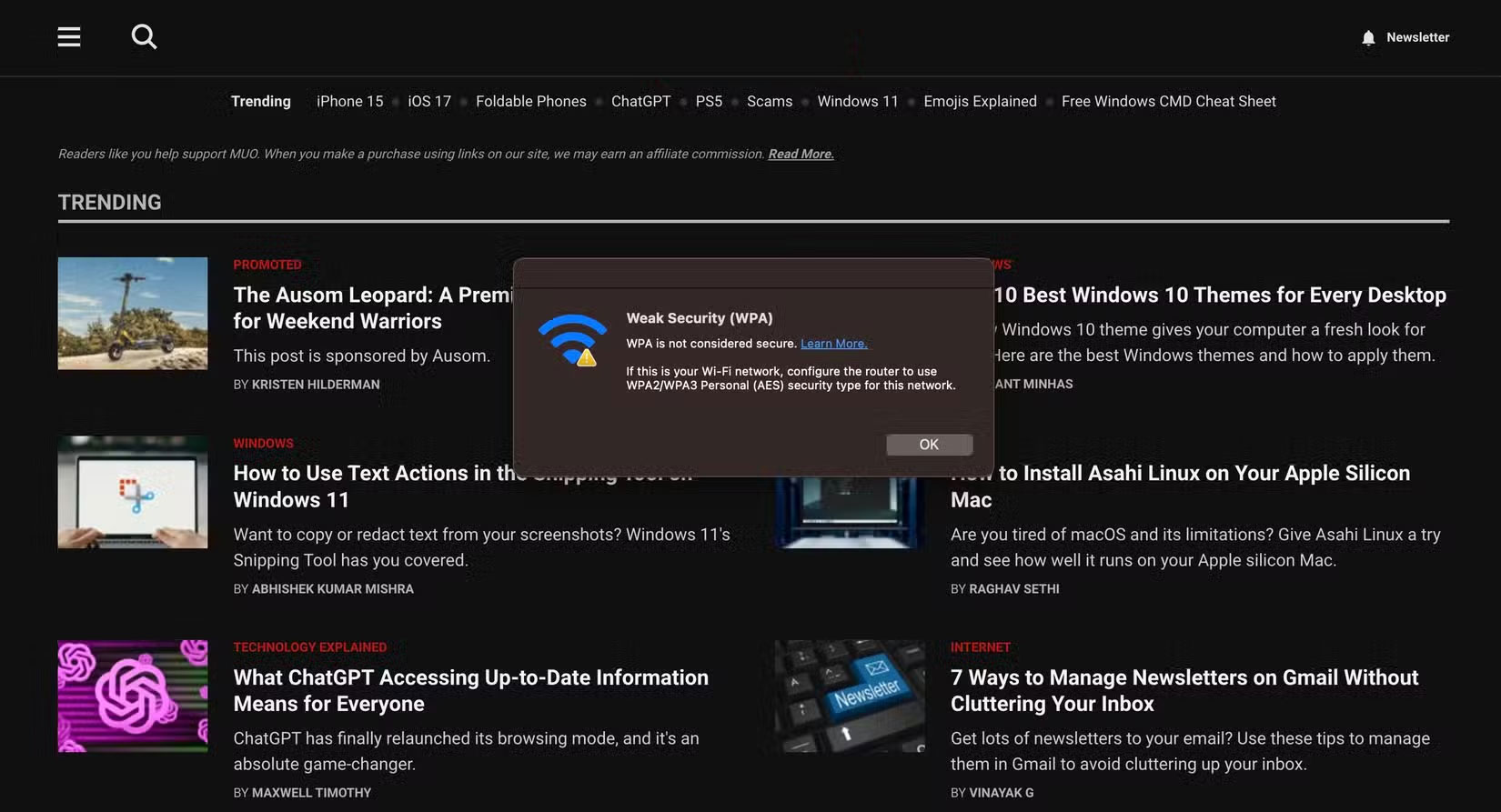Why isn't a VPN the one-click security miracle it's advertised to be?
A VPN provides an extra layer of protection when you connect to the Internet . While it can be a great way to protect your data, it's not the one-click security magic bullet that it's often touted as.
What can and can't a VPN do for user privacy?
VPNs promise digital privacy, but they are not a complete security solution. They are still a good tool to complement existing security and privacy measures, but they should not be relied upon on their own. So what can and can't a VPN do for user privacy?
VPNs encrypt a user's internet traffic and route it through remote servers, hiding their real IP address from websites and internet service providers. This creates a secure tunnel between the user's device and the VPN server, making it difficult for anyone monitoring the connection to see what you're doing online. When you visit a website, it will see the VPN server's IP address instead of your home connection, thus masking your real location.

However, VPNs also have blind spots that are rarely addressed. They do not protect against malware, viruses, or other malicious software that can infect a user's device. If you download infected files or visit compromised websites, a VPN will not prevent malware from installing itself on your computer. Encryption only protects data in transit, not what happens after it reaches your device.
So while VPNs offer some benefits – including serving as an extra layer of security – they're not quite the one-click solution people often think they are.
Risks of Trusting a VPN Provider

Aside from the technical vulnerabilities of VPNs, another big issue to consider is that you are essentially handing over all of your traffic to the VPN provider.
When you connect to a VPN, you're not hiding your traffic. Instead, you're transferring trust from your Internet provider to the VPN company. That means your VPN provider can see and record everything you do online, depending on their policies and business model.
Not all VPNs treat user data the same. Some only keep basic connection logs, such as connection time, session length, and the server you use. While these logs don't show exactly what you've been doing, they can still reveal behavioral patterns and can be used to link your activity to you. Other providers go further, keeping detailed usage logs that include the websites you visit, the files you download, and even your original IP address. This type of tracking defeats the whole purpose of using a VPN for privacy, as it creates a new record of your online activity.
Where your VPN is located also matters. Some countries have strict privacy laws to protect users, but many others—especially those in alliances like Five Eyes—can legally force VPN companies to collect and disclose user data. So even if a VPN claims to have a 'no-logs' policy, government laws can still invalidate that promise and put user privacy at risk. So be sure to check that a VPN is not in the Five Eyes surveillance zone before signing up.
Remember, trusting a VPN provider means entrusting your privacy to them. It is important to choose carefully, read the terms carefully, and understand that a VPN is only as trustworthy as the company providing it.
Why is VPN alone not enough to protect privacy?

A VPN can hide your IP address and encrypt your internet traffic, but it doesn't make you invisible online. Many of the biggest privacy threats remain out of reach of VPNs, so relying on just one tool leaves you with huge gaps.
Websites and advertisers still track you using cookies , browser fingerprinting , and account logins. Even with a VPN, Google, Facebook, and other platforms can still build detailed profiles based on your activity if you're logged in or using the same device. These companies don't just see your IP address, and a VPN won't stop them from collecting data.
VPNs also can't protect you from malware, phishing attacks, or vulnerabilities in browsers and apps. If you click on a malicious link or download a dangerous file, a VPN won't stop the threat. Antivirus software, browser security settings, and smart habits are still essential to staying safe.
The reliability of VPN providers is also a serious weakness. Some services log user activity or have poor security, putting customer data at risk if their servers are compromised or if they operate in countries with strict surveillance laws. Using a VPN forces you to transfer trust from your Internet provider to the VPN company, which is not always a smart move.
 How to link a local account to a Microsoft account Windows 11
How to link a local account to a Microsoft account Windows 11 4 Windows Security Settings Hackers Hope You Don't Find
4 Windows Security Settings Hackers Hope You Don't Find Instructions to delete search history on Search Bar Windows 11
Instructions to delete search history on Search Bar Windows 11 9 Apps That Instantly Fix Everything You Hate About Windows 11
9 Apps That Instantly Fix Everything You Hate About Windows 11 How to delete Edge tabs from Alt + Tab
How to delete Edge tabs from Alt + Tab How to delete microphone usage history on Windows 11
How to delete microphone usage history on Windows 11